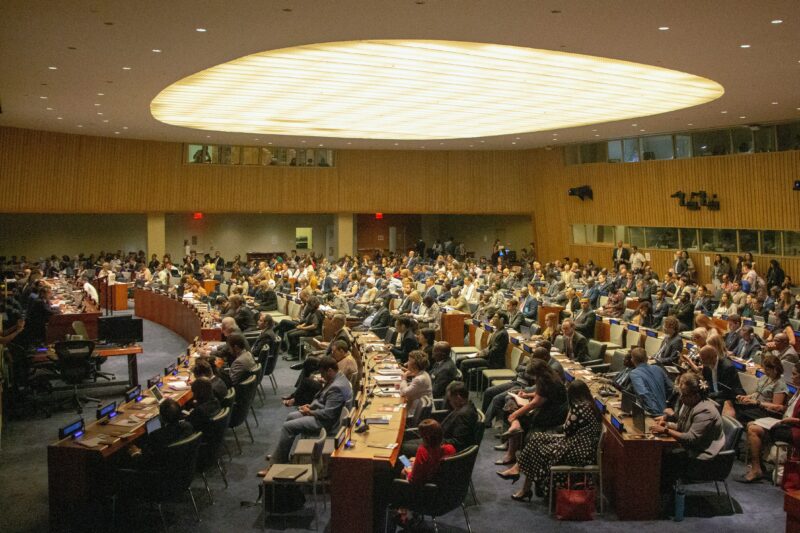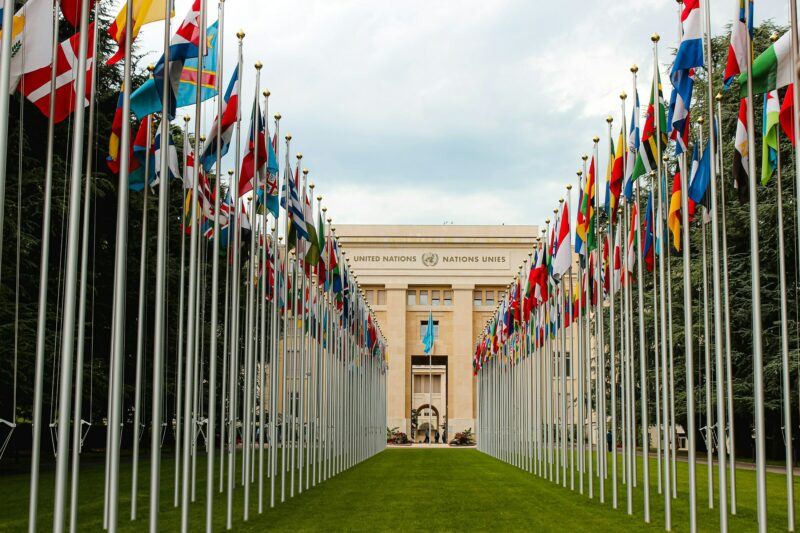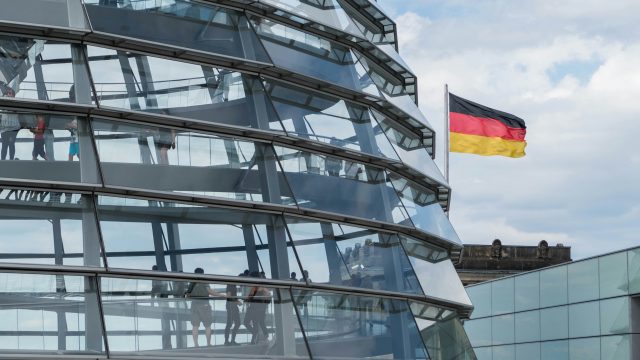The Summit of the Future: one tiny step towards the future
More fiddling as Rome burns - or a quietly radical pact with potential for transformation of future generations?

With a pre-event promise of the Summit of the Futures as “a once-in-a-generation opportunity to shape our world together”, the reality has – to put it mildly – fallen short.
Our international governance architecture is creaking and failing to deliver in its core tasks. We are living in a time of polycrisis, as war, democratic decay, climate change, and the wholesale loss of the natural world spin out of the fundamental failure of the neoliberal economic system. Peace and security has collapsed in many geographic regions; international cooperation is at an all-time low; public support for democracy is cratering.
In terms of our economy, the violence of our extractive system has been laid bare for all to see with a crisis of indebtedness, soaring inflation, increased inequality and finance flowing from the majority world to the minority. The weight of this economic disaster falls overwhelmingly on those vulnerable people in lower-income countries already staring down the climate catastrophe.
“ At a time when the science is telling us that the transgression of planetary boundaries risks no less than disrupting the stability, resilience and liveability of the of the planet, new ways of thinking and political organising are necessary.”
The Sustainable Development Goals are way behind track, increasingly feeling like a relic of a bygone age of the mid-00s: a more confident – version of the international community that believed that things were and would continue to get better.
The language of basic human rights – once an uncontroversial commonplace at the heart of the international community - is now more contested than ever, and the real life implications of our failure to govern the digital space ethically and effectively comes clearer with each passing month, as a deluge of online disinformation overwhelms electorates and creates the conditions for ever-more extremist parties to reach closer to political power.
The UN is facing a cashflow problem as states are failing to pay their dues. Cooperation across borders has become more difficult than ever, especially given the overlapping spread of competing interests and alliances. With conflicts raging in Gaza, Ukraine, Sudan, Yemen and now Lebanon, the UN Security Council is beset by tensions between its most powerful members at a level unmatched since the Cold War.

Into this time of instability, the outgoing UN Secretary-General Antonio Guterres set a challenge to correct the multilateral failures of his generation and create a road map for future generations towards a better governed planet. A laudable and necessary goal, but one beset by difficulties.
Given all of the above, the mere fact that the Pact for the Future was actually agreed upon and signed by 143 countries represents a real achievement. Yes, it is just a piece of paper with no binding legal power, yes it is the most incremental of incremental baby steps - but it does have a genuinely transformational concept at its heart.
In understated language the Pact is “cognizant that future generations are all those generations that do not yet exist, and who will inherit this planet.” It also recognises “that the decisions, actions and inactions of present generations have an intergenerational multiplier effect, and therefore resolving to ensure that present generations act with responsibility towards safeguarding the needs and interests of future generations.” All of this is quietly radical.
Calling on us to introduce a whole of government and governance structures that are long term, participatory, and that engage youth; sustainable and with intergenerational fairness at their core. This is nothing short of being transformational.
At a time when the science is telling us that the transgression of planetary boundaries, risks no less than disrupting the stability, resilience and liveability of the of the planet, new ways of thinking and political organising are necessary. In this context hope is an act of bravery and positive engagement.
This was the latest milestone in the long history of the movement to care for future generations and the inheritance that we leave others with. In the words of UN Secretary General António Guterres: “our success or failure hinges not on the adoption of agreements but on our actions and the lives of the people that we serve”.
Collectively we need to address critical issues like climate change, economic injustice, gender equality, and the responsible regulation of emerging technologies. This pact and the work of others like it can create a pathway for implementation that can achieve these goals. So let’s use the hook and template of future generations thinking to transform what we can do in the times that we are in.
As we move forward, it is essential that these principles are not only discussed but implemented globally. A future where sustainability guides our actions, where gender equity is a reality, and where the development of AI is aligned with ethical and social values is possible if we act decisively today. Let’s make sure that the commitments we make now ensure that the next generations inherit a world where they have the freedom and the resources to build a better future.
- Jean McLean, GEC


